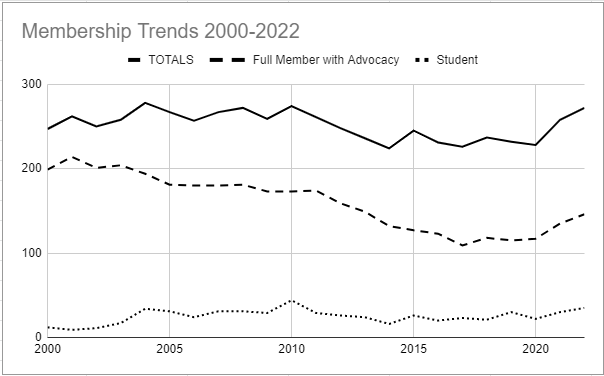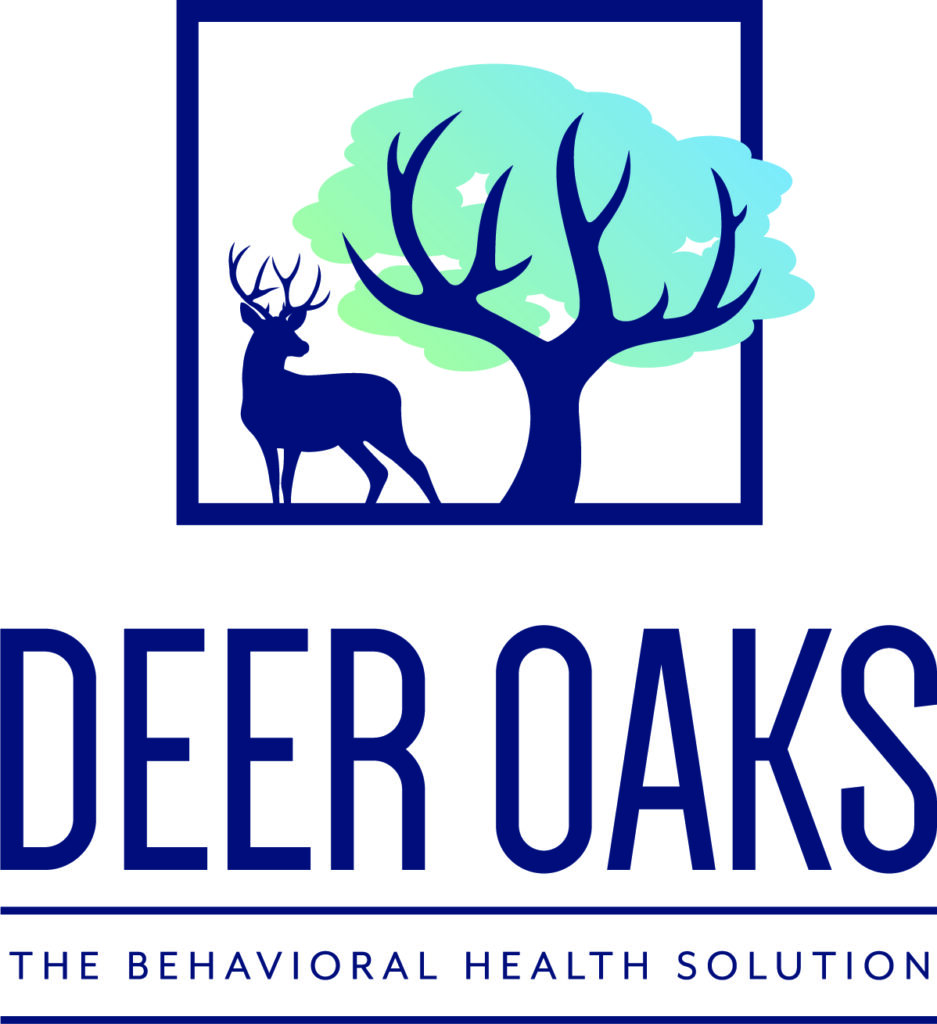Benefits of Renewing Your IPA Membership Today: Reflecting Back and Looking Ahead
The Iowa Psychological Association Membership Committee is currently in the process of encouraging past-due membership renewals while also feeling grateful for our 237 active and renewed members! We celebrate a large percentage of Iowa-residing licensees who are in our state association and we hope to see our renewal numbers continue to climb over the next week. As a reminder, non-renewed members will soon lose access to the supportive community provided within our E-list, our private Facebook group, assistance and information from our Director of Professional Affairs, and other benefits of IPA membership.
Our Association has enjoyed multiple noteworthy accomplishments over the past year and the Committee wishes to express our gratitude for a strong and influential group of members! Student membership has flourished since implementation of our Student Mentorship and Sponsored Student programs. We have seen steady growth in our student membership, from 22 student members in 2020 to 43 student members in 2024. The greatest increase occurred in 2021, when these programs were initiated. Thank you to those members who have responded to our calls for sponsored student donations and who serve as student mentors. Students have expressed great appreciation for both programs.
Over the past year, IPA has offered a broad variety of professional development opportunities to members, including a spring conference about assessment and treatment of the OCD Spectrum, a fall conference on the MMPI-3, and trainings on Culturally Responsive CBT, Addressing Whiteness in Psychotherapy, and Ketamine Clinical Care, among others. IPA has also partnered with New Mexico State University to offer Clinical Psychopharmacology training. Members can access a wide variety of recorded trainings from this past year through our website. IPA members also have access to one free recorded training each quarter. Currently, you can access Cultural Humility, a 2-hour CE training by Dr. Joyce Goins-Fernandez, through March 31.
Our Executive Council, committees, and other leadership worked hard in the past year to implement IPA’s Strategic Plan.
- The IPA Advocacy Team has supported increased Medicaid reimbursement and a new loan repayment program for non-prescribing mental health professionals, including psychologists. Their advocacy promoted the recent advancement of House Study Bill 86, which would add psychologists with advanced training in neuropsychology or concussion management as professionals who may participate in school concussion protocols. Check out the IPA Bill Tracker for other proposed state legislation of potential interest to our members and be sure to read the IPA Capitol Reports posted on the E-list for updates from our lobbyist.
- Our Director of Professional Affairs has provided essential assistance and information to help members navigate difficulties (e.g., reimbursement, recoupment efforts) with insurance companies.
- IPA leaders provided an amicus brief to the Iowa Supreme Court to urge continuation of Iowa Code requiring release of raw test materials and scores only to licensed psychologists (and persuaded Pearson to contribute a brief). The Supreme Court Justice hearing the case ultimately upheld the mandate of Iowa Code 228.9, thereby maintaining that psychological testing data may not be released to non-psychologists in judicial proceedings.
- The Strategic Plan Committee updated the IPA Strategic Plan this year based on member and committee input gathered through surveys administered in 2023. The new plan will be made available on the website in the near future.
- The Psychopharmacology Committee and Advocacy Team have successfully urged the reduction of barriers to becoming a prescribing psychologist in Iowa.
- The Policies and Procedures Workgroup completed a full update of the Policies and Procedures Manual in 2024. They also completed a thorough review and update of the Bylaws, which were recently approved by IPA membership vote.
- A Marketing Workgroup has successfully completed a time-intensive rebranding and website updating project. Check out the website’s exciting new look!
- The Ethics Committee has thoughtfully created a procedure for seeking their consultation that has served an immense benefit to our members. Their Ethics Consultation Request Form is available on the member resources page of the website.
We are excited for the Spring Conference in Cedar Rapids on April 4-5 covering three engaging topics: Clinical Psychopharmacology, Understanding the Physiological and Psychological Functions of Sleep, and Evaluation of Autism Spectrum Disorder. Additionally, we are looking forward to Legal and Ethical Considerations in your Psychology Practice on May 16 and the 2025 Trust Ethics Workshop on June 20.
Our Advocacy Team is focusing their efforts on the Executive Committee-approved advocacy agenda for the year as they contribute to the fast-paced legislative process.
We invite you to review additional member benefits on our website, which you are encouraged to share with others who may be interested in joining our thriving community.
To members who have renewed, we appreciate your continued support of IPA. We hope that remaining members who missed the deadline will take advantage of the grace period and renew soon!

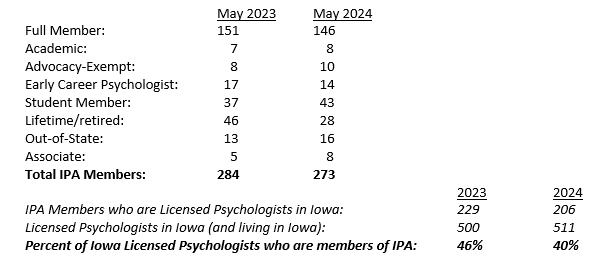
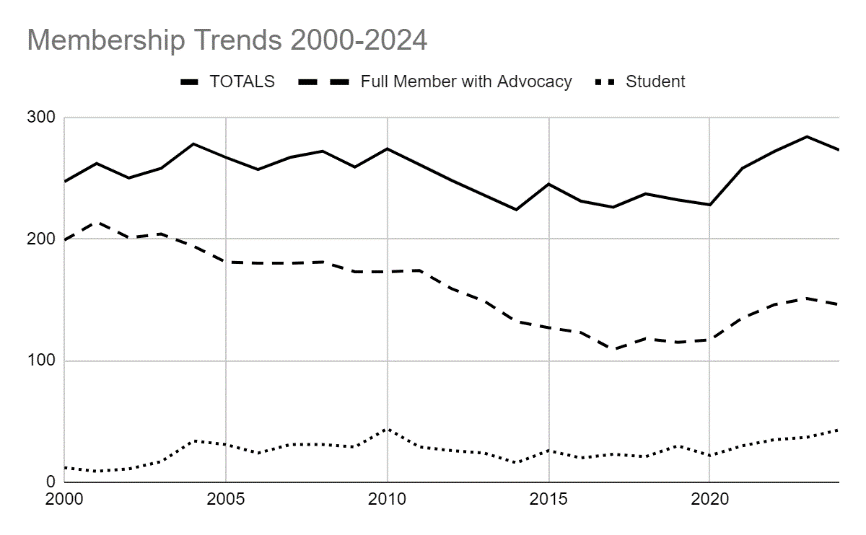




 Hello, fellow psychology students! My name is Ashley Banta, and I’m the IPA Student Division Representative-Elect. I am eager to advocate for psychology doctoral students in Iowa. Today, I have the top FIVE reasons you should join IPA!
Hello, fellow psychology students! My name is Ashley Banta, and I’m the IPA Student Division Representative-Elect. I am eager to advocate for psychology doctoral students in Iowa. Today, I have the top FIVE reasons you should join IPA!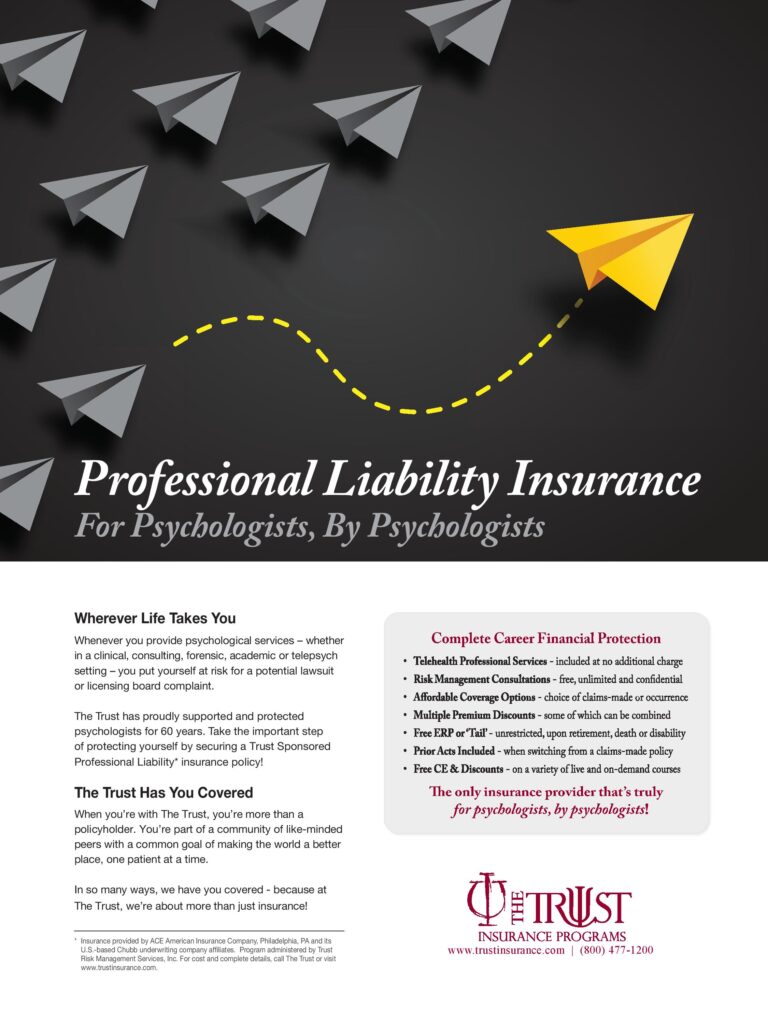
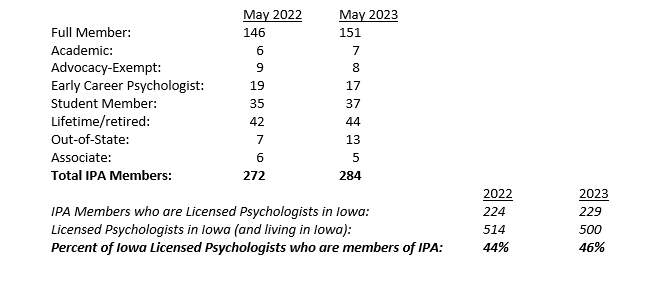
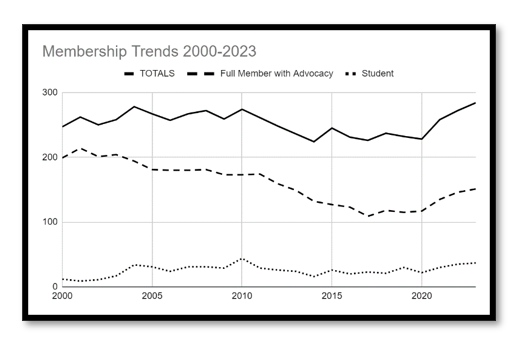

 Happy New Year to my IPA colleagues and friends! It is that exciting time of year full of new ideas, hopes, goals, and adventures. I sincerely hope that renewing your commitment to IPA is one of your goals for 2023.
Happy New Year to my IPA colleagues and friends! It is that exciting time of year full of new ideas, hopes, goals, and adventures. I sincerely hope that renewing your commitment to IPA is one of your goals for 2023. 


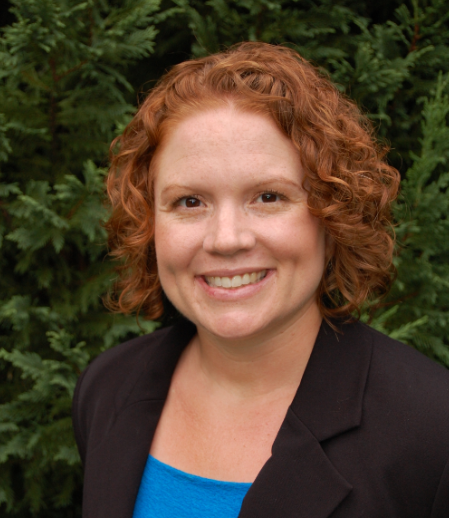
 Did you know that September is National Preparedness Month? In 2004, September was declared National Preparedness Month to encourage Americans to prepare for emergencies in their homes, businesses, schools, and communities. September was chosen because September is the peak of the Atlantic hurricane season and is historically linked to the September 11th attacks in 2001.
Did you know that September is National Preparedness Month? In 2004, September was declared National Preparedness Month to encourage Americans to prepare for emergencies in their homes, businesses, schools, and communities. September was chosen because September is the peak of the Atlantic hurricane season and is historically linked to the September 11th attacks in 2001. 

